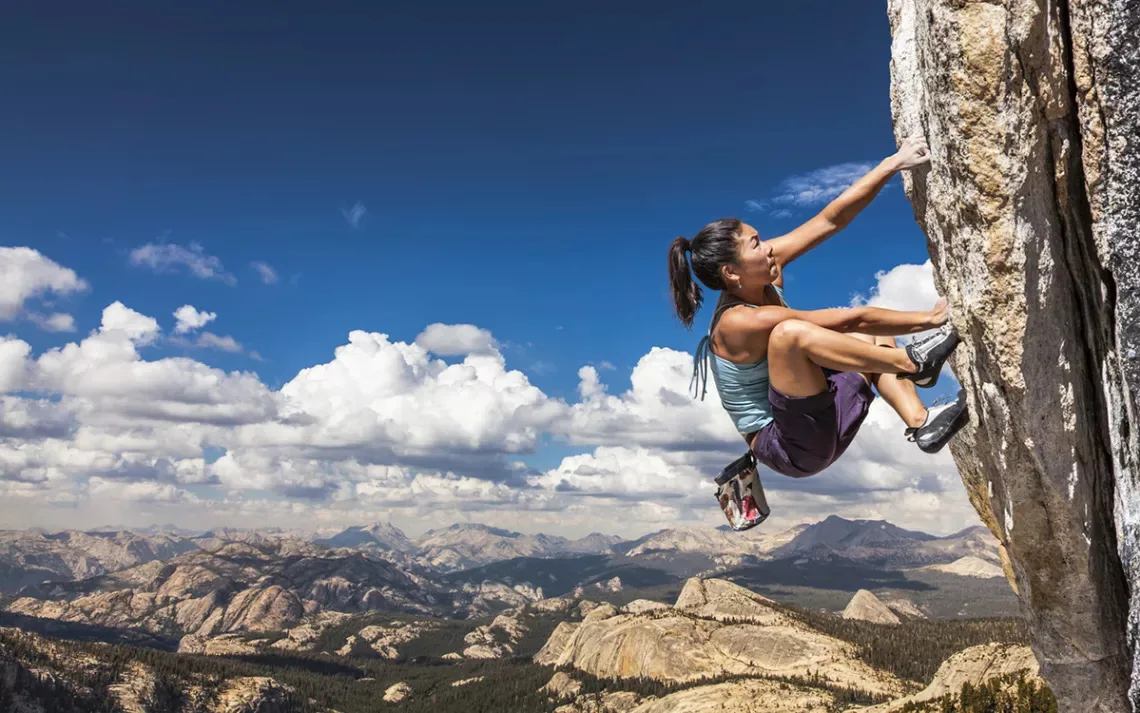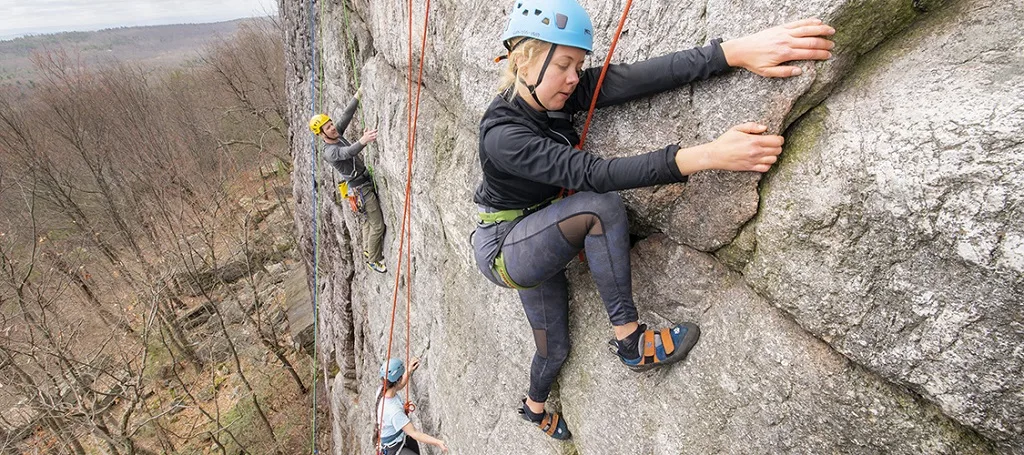
Rock Climbing as a Hobby and Way to Relax
Rock climbing, a popular and exhilarating outdoor activity, serves as both a hobby and a means of relaxation for many enthusiasts. It offers a unique blend of physical challenge, mental engagement, and serene connection with nature, making it an ideal pastime for those seeking an escape from the rigours of daily life. In this article, we will explore the multifaceted benefits of rock climbing, discuss essential equipment and safety measures, and provide insights into the best climbing spots for beginners and seasoned climbers alike.
Physical and Mental Benefits of Rock Climbing
Rock climbing is renowned for its extensive physical benefits. It provides a full-body workout, engaging muscles in the arms, legs, back, and core. This sport helps in building strength, improving flexibility, and enhancing endurance. Furthermore, the dynamic movements involved in climbing improve coordination and balance. These physical demands also contribute to significant calorie burning, aiding in weight management and overall fitness.
Beyond physical fitness, rock climbing offers substantial mental health benefits. The sport requires intense concentration and problem-solving skills, often referred to as ‘route reading’. Climbers must plan their moves and react quickly to changing situations, which enhances cognitive functions and mental agility. Additionally, the focus required during climbing sessions helps climbers enter a state of ‘flow’, reducing stress and promoting mental well-being.
Essential Equipment and Safety Measures
Safety is paramount in rock climbing. The sport necessitates a range of equipment to ensure climbers’ safety and enhance their performance. Key gear includes climbing shoes, harnesses, helmets, carabiners, and ropes. Each piece of equipment serves a specific purpose: climbing shoes provide grip and support, harnesses secure climbers to the rope, helmets protect against head injuries, and carabiners and ropes are essential for securing climbs and ensuring safe descents.
Adhering to safety protocols is crucial. Climbers should undergo proper training to understand and implement safety techniques. This includes learning how to tie knots correctly, belaying techniques, and the importance of checking equipment before each climb. Climbing with a partner or in a group is also advisable, as it adds a layer of safety and support. Additionally, staying informed about weather conditions and choosing routes that match one’s skill level are essential practices for a safe climbing experience.
Top Rock Climbing Destinations
The world is replete with stunning rock climbing destinations that cater to climbers of all levels. For beginners, places like Joshua Tree National Park in the United States offer a variety of routes with different difficulty levels, allowing new climbers to progress gradually. More advanced climbers might enjoy the challenging cliffs of El Capitan in Yosemite National Park, known for its vertical granite walls.

Getting Started with Rock Climbing
Starting a rock climbing journey can be intimidating, but with the right approach, it becomes an enjoyable adventure. Beginners should consider taking introductory classes offered by local climbing gyms. These classes provide foundational skills and knowledge about climbing techniques and safety measures. Moreover, joining a climbing community or club can be beneficial. These groups offer mentorship, resources, and a supportive environment for newcomers.
Maintaining a Climbing Routine
Consistency is key in rock climbing, as regular practice helps improve skills and build strength. Climbers should set achievable goals and gradually increase the difficulty of their climbs. Incorporating a balanced fitness routine that includes strength training, cardio, and flexibility exercises can enhance climbing performance. Additionally, staying motivated through challenges and celebrating milestones keeps the climbing experience rewarding.
The Therapeutic Aspect of Rock Climbing
Beyond physical and mental benefits, rock climbing has a therapeutic aspect. The sport promotes mindfulness as climbers focus intensely on the present moment, leaving behind everyday worries. The connection with nature during outdoor climbs further enhances this therapeutic effect, providing a sense of peace and grounding. Many climbers find that the combination of physical exertion and natural beauty helps alleviate anxiety and boosts overall mental health.



